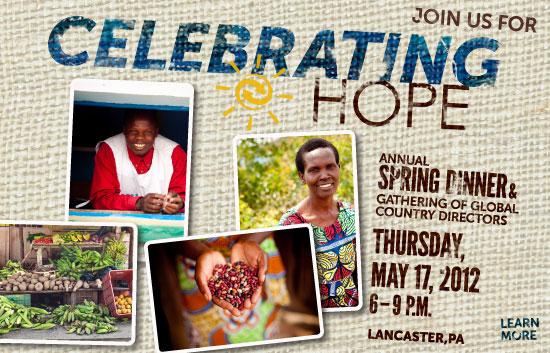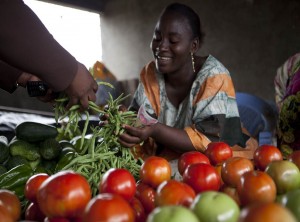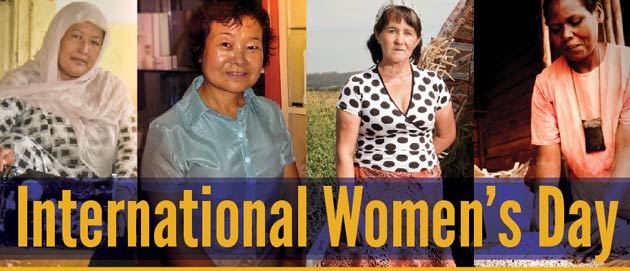“People that give are so blessed by their giving that it’s contagious. They want to talk about it. They’re excited to talk about it.” – Pastor Chris Seay at Compassion International chapel
“Contagious” is a word not often associated with generosity. And when it is, it’s often not in a positive way. I remember a moment several years ago when I purposefully made a call on my cell phone as I walked past a Christmas bell ringer, wanting to bypass the bell ringer completely as if I might catch a disease if I walked too close. Perhaps you’ve had a similar reaction to a fundraising support letter or a panhandler in your town. But when Seay describes contagious giving, he’s not articulating a pie-in-the-sky notion that it’s possible for generosity to be positively contagious. He’s seen it in a profound way. Continue Reading…









 Or “expert,” I should say. Malu Garcia is at the center of HOPE’s expertise on savings models that can alleviate poverty for the poorest of the poor. She specializes in training and equipping local staff who will be directly training savings groups, and she’s been traveling through Asia with me, assessing and providing additional training for our savings partners here. It’s truly a joy to serve alongside her. Here are a few more details about Malu:
Or “expert,” I should say. Malu Garcia is at the center of HOPE’s expertise on savings models that can alleviate poverty for the poorest of the poor. She specializes in training and equipping local staff who will be directly training savings groups, and she’s been traveling through Asia with me, assessing and providing additional training for our savings partners here. It’s truly a joy to serve alongside her. Here are a few more details about Malu: “Hello – My name is Fabia, how are you today?” That is all it took for my wife, Anne, to decide where she would purchase her gas once we had moved to Kigali, Rwanda. Today, we both make a real effort to return and visit Fabia. It is not because of “high performance petrol” but to enjoy and encourage the kind interaction that comes with Fabia’s consistently great customer service.
“Hello – My name is Fabia, how are you today?” That is all it took for my wife, Anne, to decide where she would purchase her gas once we had moved to Kigali, Rwanda. Today, we both make a real effort to return and visit Fabia. It is not because of “high performance petrol” but to enjoy and encourage the kind interaction that comes with Fabia’s consistently great customer service.








